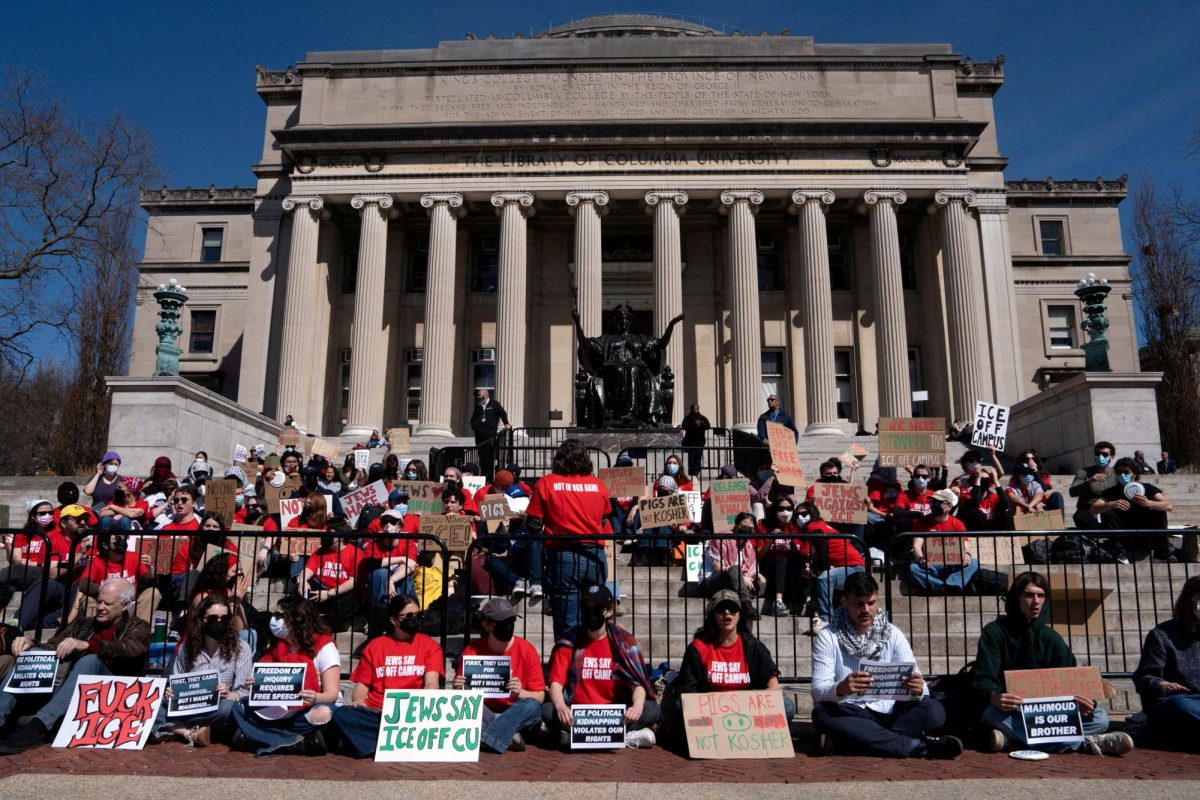College years are notoriously wonderful and difficult for many young people nationwide. It’s a time of change, growth, and bittersweet emotions. It would not be a great time to experience a government crack-down on the college community that has now become your home, but for current Columbia University Students, their life has become just that.
Last month, after the withdrawal of 400 million dollars in government grants, Columbia University agreed to begin negotiations with the Trump Administration to restore slashed funds. The grants had been canceled earlier on March 7th in response to alleged security concerns, antisemitism, and dangerous protesting according to NBC. The administration has accused the University of “inaction in the face of persistent harassment of Jewish students,” especially during the pro-Palestine encampment protests of last year.
As a basis for the withdrawal, the administration alleged that Columbia “failed to protect American students and faculty from antisemitic violence and harassment in addition to other alleged violations of Title VI and Title VII of the Civil Rights Act of 1964.”
In a letter to the University’s interim President, Dr. Katrina Armstrong, officials from the U.S Department of Education laid out nine major reforms to comply with in exchange for restoration of the grants:
- Enforce Existing Disciplinary Policies: Calling for more frequent expulsions and multi-year suspension for students participating in violent antisemitism and protest.
- The primacy of the President in Disciplinary matters: Abolish the University Judicial Board and centralize disciplinary action under the Office of the President.
- Time, manner, and place rules: Implement rules that prohibit “disruption of teaching, research, and campus life” to limit the frequency of protests.
- Mask Ban: Ban all masks being used to conceal identity to prevent individuals from hiding their identity during protests and other acts. If an individual were to be found wearing a concealing mask they must have their Columbia Student ID on their outerwear.
- Deliver Plan to hold all student groups accountable: Any student groups or organizations opposing these policies must be held accountable through investigations and potential expulsion.
- Formalize, Adopt, and promulgate a definition of antisemitism: Define what an anti-semitic act is to ensure conflicts can be addressed with disciplinary action.
- Empower Internal Law Enforcement: Campus security must be expanded and given the authority to arrest and remove agitators on campus.
- MESAAS Department: Begin investigations of Middle East, South Asian, and African-American studies departments for a minimum of five years.
- Deliver a plan for a comprehensive admissions reform: Reform the admissions office to ensure it is not following illegal affirmative action policies.
Columbia’s agreement to the reforms, although necessary to return the ransomed grants, has come under much fire.
“Columbia is the canary in the coal mine of totalitarianism,” said Sheldon Pollock, a Columbia professor and former chair of the MESAAS department that is now under investigation. “This is a very worrying development across the board for university faculty.”
Despite beginning to restore the 400 Million grants, student opportunities and research will still be impacted by this action.
“There is a natural association in how much money a school has to work with, with sometimes the quality of the experience from an academic perspective,” says CCHS College Counselor Julia Tushaus, “getting a massive budget cut is going to do major dents onto what they’re known for, which is having, healthy endowments, insane resources.”
Current Columbia students described returning to their campus after spring break, soon after the concessions to the Trump Administration, as similar to entering a completely different world. Restrictions on protest and student assembly come as a stark change as the culture and beliefs of the student body are very focused on advocacy and social justice.
The investigations and reforms piloted by the Department of Education are set to expand to many more college campuses. On March 28, the department opened over 85 additional investigations similar to that at Columbia according to EducationWeek. Most notably, universities such as UC Berkeley, Yale University, Duke University, and Georgetown University are next to be investigated to name a few.
Future investigations are also predicted to focus on topics like Race-Based Programming (DEI), transgender student policies, and services for students with disabilities. Withholding government support will continue to be the primary method of influencing universities and it may have devastating impacts on the college education system.
800 million dollars in research funding has already been withheld from Johns Hopkins University. 2000 employees had to be let go as a result, a worrisome warning for what may be to come.
“When you don’t have the resources to attract the students, then you’re gonna be losing enrollment, which naturally means that a school is gonna be a little bit more jeopardized for what they have to offer and then potentially even their existence as a university,” says Tushaus.
The changes at Columbia could be only the beginning of a large-scale change in the entire United States Education system.






















































